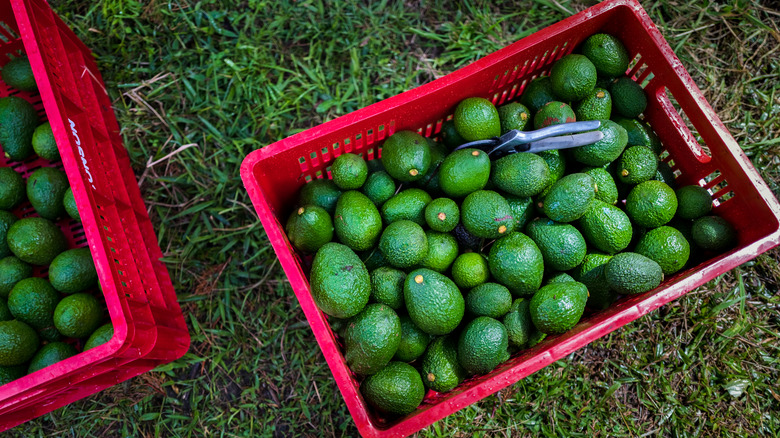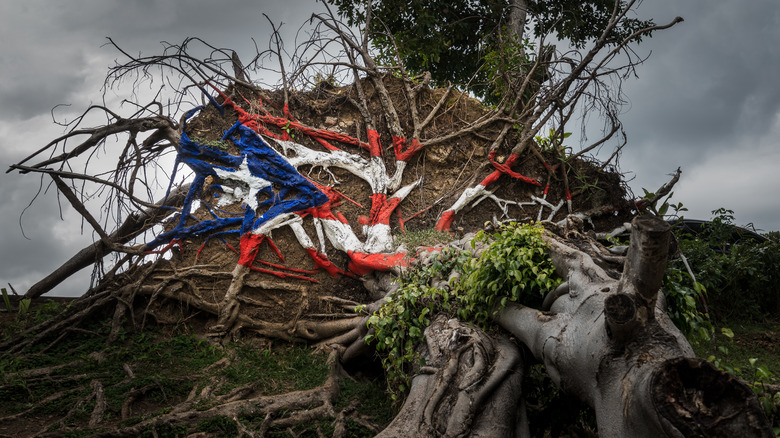The Important Role Avocados Are Playing After Puerto Rico's Storm
Sunday, September 18, Puerto Rico was ravaged by Hurricane Fiona, a powerful storm that has left the island reeling in its wake (via CNN). According to Reuters, when the hurricane made landfall it caused an island-wide power outage affecting the total population of about 3.3 million, and as of today, about 746,000 homes and businesses remain without electricity. NPR reports that Fiona's 85-mile per hour winds caused flooding and landslides, claiming at least two lives; beyond that, a vital part of life on the island — its agricultural industry — has also been, in large part, destroyed.
The Washington Post reports that 90% of Puerto Rico's plantains – the island's dominant crop — have been wiped out. Crops such as pumpkin, pepper, eggplant, and sweet potato have taken a hit as well, and according to NPR, avocados are basically raining from the trees after the hurricane's winds knocked the fruit from branches across the island. Avocado trees have been bursting with fruit this summer, the outlet reports; and over the past week, Puerto Ricans have been struggling to eat it all before it rots.
Puerto Ricans are sharing their avocados
In the week since Hurricane Fiona tore through Puerto Rico and knocked all its avocados to the ground, the creamy fruits — which need to be consumed before they go bad — "have become a currency of community," according to NPR. Residents with yards full of downed avocados leave bags of fruit on their neighbors' doorsteps, and along the roads plagued by washouts. In San Juan, a donation drive seeking water, food, and household essentials for survivors has been handing out free avocados to each person who has donated.
Avocados are even being shared at Puerto Ricans' workplaces. "My colleagues gave me three bags!" Pedro Lugo, a resident of Lajas, told NPR. "I said, 'What am I going to do with all of these? I can't eat guacamole everyday!'" During the storm, Lugo had watched as his neighbor Willy Torres Martinez's loaded avocado tree danced "from side to side."
After the storm passed, Martinez counted more than 100 fruits on the ground in his yard — then got to work packing them into bags and delivering them to his neighbors. "I like to share," he told NPR. "Because when you share, it comes back to you twofold."
In addition to neighbors sharing their avocados with anyone who is in need or willing to lend a hand to those that are, grassroots community groups, local nonprofits, and national organizations are offering relief in the form of first aid, food, and money (via The News & Observer).

